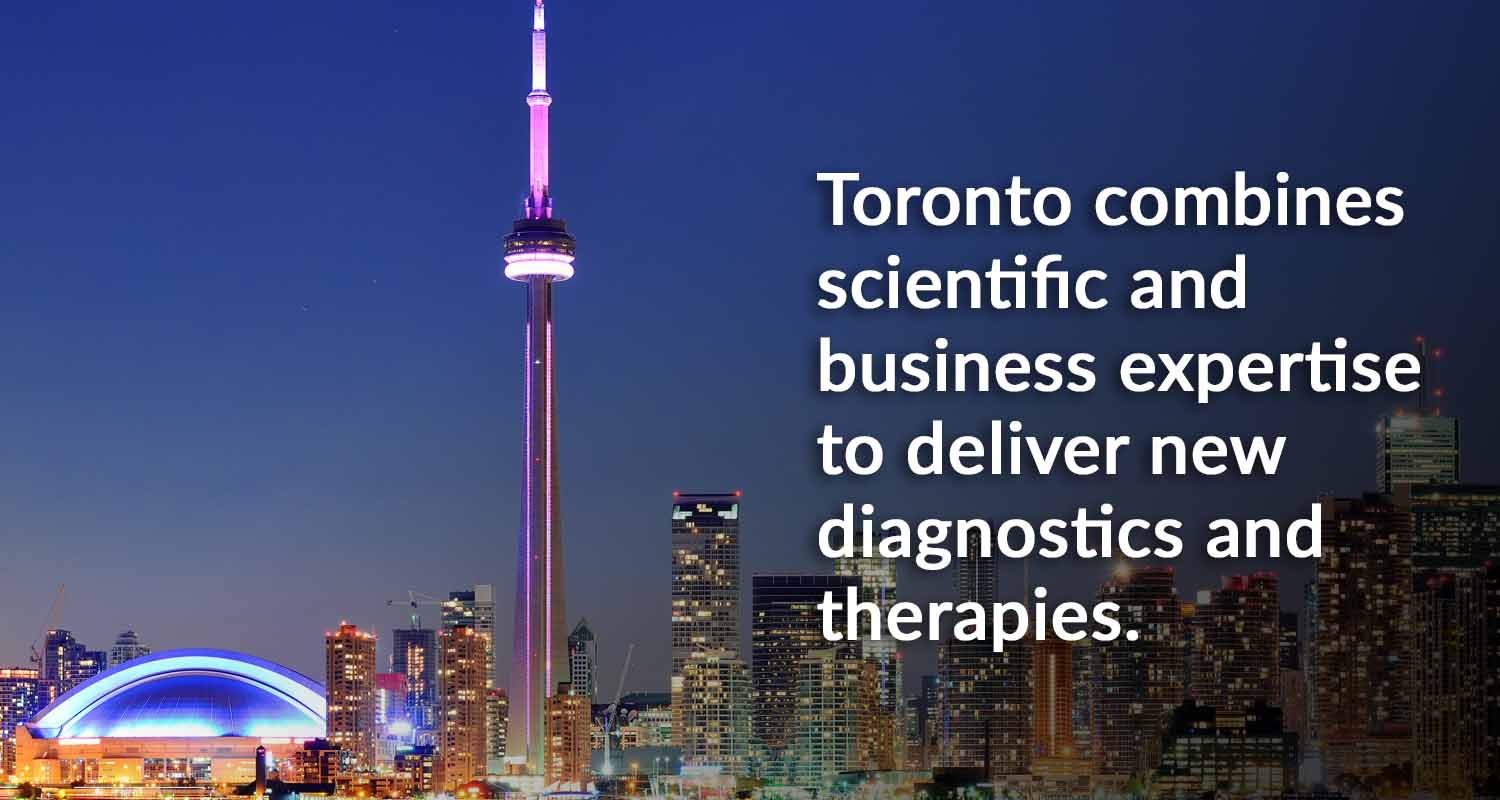Toronto is the largest city in Canada. Whether ascending the CN Tower or visiting the Hockey Hall of Fame, there are many fun places to visit and great dining in the The 6.
Toronto is one of the top cities in North America for the human health sciences, combining research, clinical and business expertise to deliver new diagnostics and therapies. The city’s life sciences sector employs nearly 30,000 professional and contributes more than $2 billion to the local economy. (Toronto.ca/business-economy 2021).
Here are my picks for exciting biotech companies in Toronto:
Bresotec is a team of health experts and entrepreneurs that are alleviating the cost, complexity and health burden of sleep apnea. Their work provides healthcare professionals and their patients with a better, simpler sleep test that reduces the cost of sleep testing without compromising lab accuracy.
RNA Diagnostics has developed The RNA Disruption Assay™ (RDA™) that will provide physicians with an evaluation of how individual patients are responding to cancer therapy. If the cancer drugs are likely to provide the patient with a benefit, the physician and patient can continue treatment with confidence. If the cancer drugs are not likely to benefit the patient, physicians may consider alternate treatments. For patients, this means avoiding harmful side effects and increasing the possibility of improved survival outcomes.
Mannin Research, is developing a unique set of molecules to treat vascular related diseases, such as Primary Open Angle Glaucoma, Pediatric Glaucoma, Cystic Kidney Disease, and Inflammation via their proprietary research platform. Their primary indication, MAN-01, is for treatment of Primary Open Angle Glaucoma, wherein they are developing a small molecule in the form of an easy to administer eye drop to reduce intra-ocular eye pressure (IOP), a key risk factor in the progression of Glaucoma.
Notch Therapeutics is improving on current T cell therapies that require a complex, patient-specific manufacturing process. The “vein-to-vein” processing of a CAR-T therapy leads to delays and variability that negatively impact patient outcomes. To fulfill the promise of a cell therapy that can be delivered as an off-the-shelf, fully characterized medicine, Notch Therapeutics is manufacturing T cells from induced pluripotent stem cells (iPSCs). Their unique technologies and capabilities are rooted in foundational discoveries in developmental biology.
NoNO has long believed in the promise not only of reducing ischemic damage but to unlock the brain’s own capacity to recover from disease. Their therapeutics have demonstrated potential to improve the lives of patients following ischemic stroke, traumatic brain injury, and other chronic neurological and neurodegenerative diseases.
Their lead drug candidate, nerinetide, is a first in class PSD95 inhibitor that promotes cell survival and disrupts toxic cell signals following damage to neurons. NoNO’s core technology and therapeutic targets have been validated in multiple laboratories worldwide and published in leading scientific journals.
Helix Biopharma has developed DOS47, based upon a naturally occurring enzyme isolated from the jack bean plant called urease that breaks down a natural substance found in the body, urea, into metabolites that include ammonium and hydroxyl ions. By doing so at the site of cancerous tissues in the body, the Company believes DOS47 can modify the micro environmental conditions of cancerous cells in a manner that leads to apoptosis (programmed cell death).
